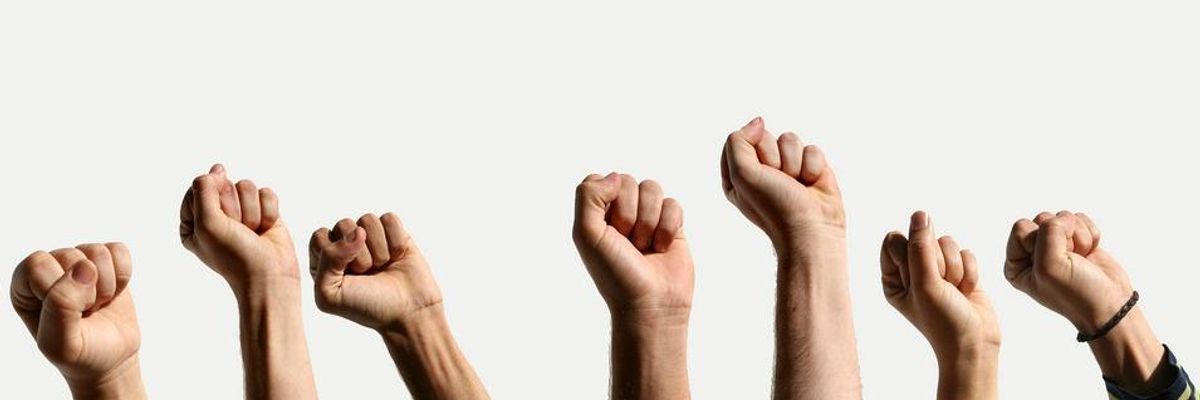I am not sure what it was that pushed me to tweet three deeply personal memories that I had never shared with anyone, let alone the millions on social media.
But in the early evening of Thursday, October 30, that's what I did, almost casually tossing them off, as if I were snarking about the Oscars or the Harper government.
Earlier that day, my Facebook friend Sue Montgomery, justice reporter at the Montreal Gazette, had messaged me to express frustration at how the women who had brought stunning allegations against CBC star Jian Ghomeshi were hitting the same wall of cruel skepticism and victim-blaming that crushed every woman who has ever pointed a finger at an attacker.
Actress Lucy DeCoutere had stepped out of the shadows of shame and on to the front pages only to have her motives questioned, her judgement impugned, her reputation shredded.
And so #IBelieveLucy was wielded by those who wished to emphasize that women rarely report attacks, particularly when the perpetrator has influence or power, because the judicial assault can be even worse than the sexual one.
But that wasn't enough for Sue. Correctly assuming that I too had been a long silent and suffering victim--so many are, you see--she asked me to put my name to a list that we would pass around and eventually make public.
That's when I tweeted, "#ibelievelucy #ibelievewomen And yes, I've been raped (more than once) and never reported it. #BeenRapedNeverReported."
An hour later, I kicked it up: "If all women who've been raped stepped out of our shame & shared, we would make the stigma go away! #BeenRapedNeverReported #ibelievelucy"
Then I headed to the Toronto Star newsroom to attend to all the matters one must attend to when take one's leave after 25 years. I checked my Twitter timeline--and was swept away by the flood of tears and tsunami of tweets bearing the hashtag #BeenRapedNeverReported.
Women were stepping out of their shame and sharing with the world. They had found a safe place on Twitter, where so many others before them had suffered vicious misogyny and, ironically, even rape threats for posting opinions.
So that's when I joined them there, quickly, the long-suppressed memories erupting uncontrollably.
"It was 1969 when, if you found you were the only girl in the rec room and no parents were home, it was your fault. #BeenRapedNeverReported"
"1970: My friend's friend from out of town "forgot his wallet" in his hotel room, it will only take a minute. #BeenRapedNeverReported"
"1974: A half-empty 747 to London. Traveling alone. Fell asleep in my seat in the back. Thank Dog for the stewardess. #BeenRapedNeverReported"
The statistics tell victims all they need to know about seeking justice. Even if they report their attackers, even if the crown can build a case, even if there's security camera video of the assault, she will be probed and pilloried, interrogated about her drinking and drug habits, her manner of dress, even whether she has ever been treated for depression.
According to Canadian studies, only 33 out of every 1,000 are ever reported and of those only three lead to conviction. That means 99.7 per cent of attackers walk free.
Around midnight on Thursday, #BeenRapedNeverReported was trending in Canada, then it started climbing up the Twitter charts in the U.S. By Friday afternoon, some seven million tweets had been registered. It was global. And my email and Facebook message box filled up with women in India, Australia, Saudi Arabia sharing their stories.
It was moving, and as Judy Rebick put it to me, "a movement."
Ever since, interviewers have been asking how I felt when I revealed what had happened to me as a young woman. Not much was my blase response, adding that decades had passed, that I had had many great relationships with men before and after, that I had support and resources.
But the more they asked, the greater the remembered pain, the shame, the years of self-flagellation over my having been so stupid, so trusting, so unheeding of my mother's incessant warnings about what can happen to innocent girls who are not always on their guard, who drink from glasses they have not closely monitored, who go out alone, who wear low-cut blouses.
If only I had listened, I told myself, blaming myself. Again.
By Tuesday, I had to muffle sobs as yet another radio host would ask, "How did it feel to type those words?"
It felt like ripping off a bandage, and exposing the festering wound to air and light.
It hurt like hell at first.
But now it feels like healing.

